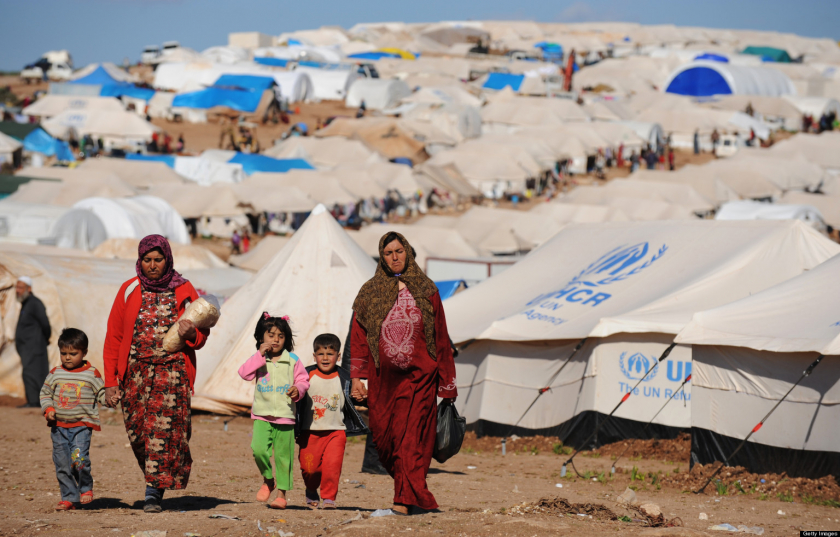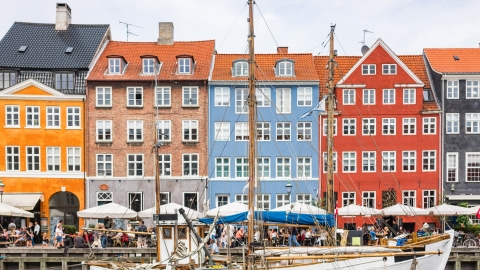The Henley Passport Index, compiled by global citizenship and residency consultancy Henley & Partners, is based on proprietary data provided by the International Air Transport Association (IATA). The company has been tracking changes in the freedom of travel between countries worldwide to identify the most "travel-friendly" passports since 2006.
Over the past 18 months, travel between countries around the world has faced numerous obstacles due to the Covid-19 pandemic. However, this index completely disregards the temporary restrictions that countries are implementing in response to the pandemic. Instead, the ranking highlights the long-term connectivity between countries, with the top 10 being the "most powerful" nations. These are countries that allow their citizens free travel to hundreds of other countries and territories worldwide.
the world's most powerful passports
The number of travel destinations covered by passports in the top 10 positions is almost identical. However, it's noteworthy that three Asian countries hold the top spots. Japan tops the list with a passport that allows visa-free travel to 192 countries and territories. Singapore's passport is tied with Japan's in that ranking.

With its trademark friendliness, this marks the fifth consecutive year that Japan's passport has held the number one position.
South Korea and Germany ranked second with 190 points each.
All the subsequent positions are occupied by European countries, similar to previous years, such as Finland, Italy, Luxembourg, Spain, etc. Among them, the United Kingdom – one of the top-ranked countries in 2014 – is now in 7th place with visa-free access to 185 countries.

European countries have consistently dominated the Henley Passport Index over the years.
In addition, the ranking also includes two American countries, the United States and Canada, ranking 7th and 8th respectively, separated by one destination. Two Oceanian countries, Australia and New Zealand, also feature in this ranking.
The Henley Passport Index also takes into account residency and citizenship by investment programs in nearly 100 countries, 60% of which are in the European Union.
Furthermore, in this ranking, Vietnam is ranked 94th with visa-free travel to 54 countries and territories. The countries at the bottom of the list are mostly in the Middle East and neighboring regions such as Yemen, Pakistan, Syria, and Iraq, with Afghanistan at the very bottom, whose citizens are only granted visa-free travel to fewer than 40 other countries.
TOP 10 MOST POWERFUL PASSPORTS IN THE WORLD IN 2021
1. Japan & Singapore (192 destinations)
2. Germany & South Korea (190)
3. Finland, Italy, Luxembourg, Spain (189)
4. Austria, Denmark (188)
5. France, Ireland, Netherlands, Portugal, Sweden (187)
6. Belgium, New Zealand, Switzerland (186)
7. Czech Republic, Greece, Malta, Norway, United Kingdom, United States (185)
8. Australia, Canada (184)
9. Hungary (183)
10. Lithuania, Poland, Slovakia (182)
Inequality against migrants
The Henley & Partners report also highlighted "the growing inequality" between developed Northern countries and less developed Southern countries globally; and spoke of how "restrictive policies initially implemented to curb the spread of Covid-19 are now being applied to curb the global flow of migrants from the South to the North."
"The Global North has been implementing strategies to contain migration flows, through the strict application of border controls, undermining migration movements in various ways," Mehari Taddele Maru, a fellow at the United Nations University Institute for Regional Integration Studies, wrote in the report: "Covid-19-related travel restrictions are new additional policies aimed at preventing the migration of people coming from the South."

Migration to the North has remained a pressing issue in recent years, particularly in Europe. Just as the Covid-19 pandemic subsided, Europe once again faced the problem of migrants flooding into the continent.
Christian H. Kaelin, Chairman of Henley & Partners and creator of the concept.passport numberHe argued that implementing measures to prevent migration could have significant consequences. He added: "If we want to restart the global economy, it is crucial that developed countries encourage inward migration, rather than stubbornly maintaining outdated restrictions."
"Resource-rich nations need to preserve their economies for the future by attracting and welcoming the next generation."

 VI
VI EN
EN





























